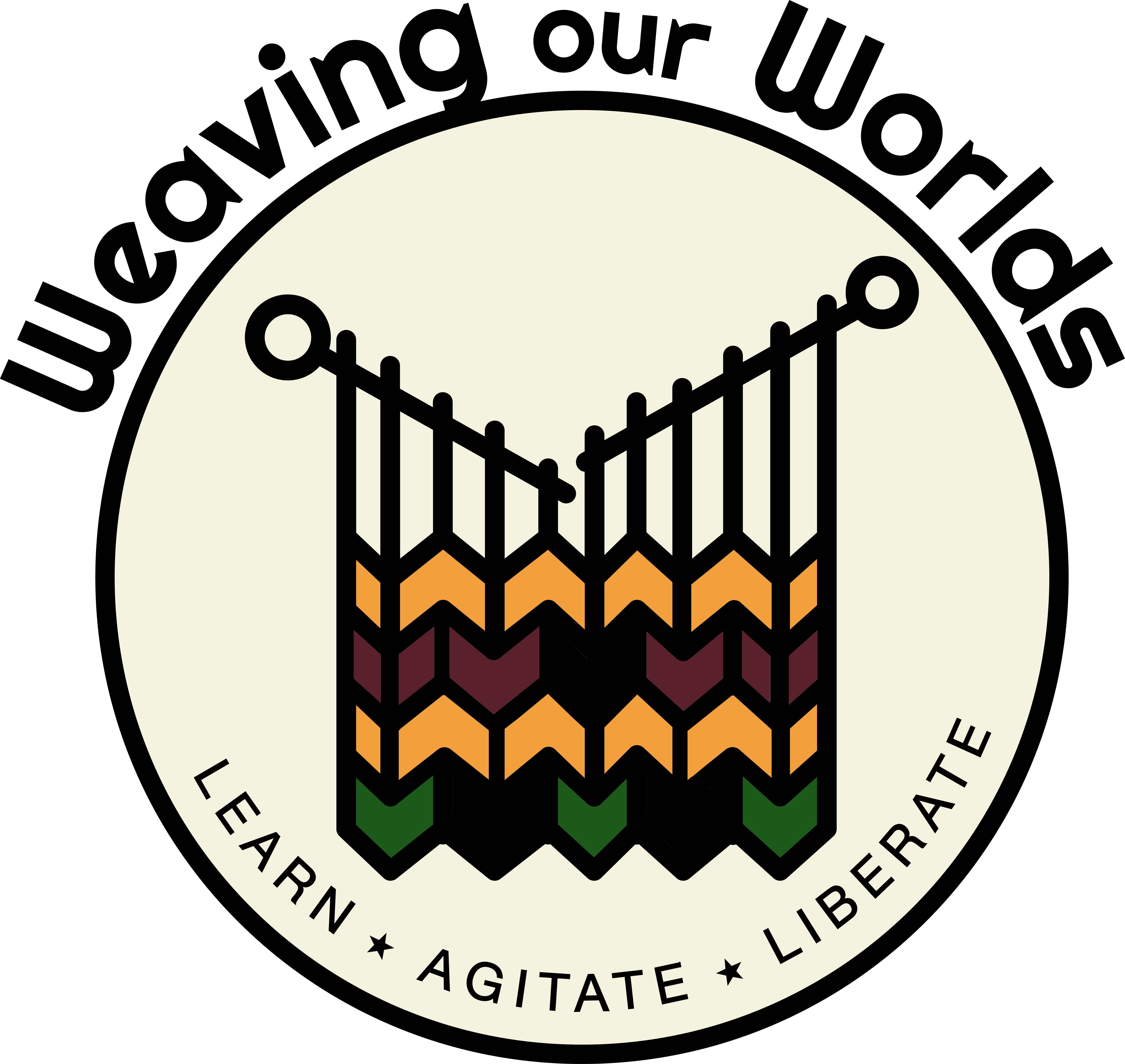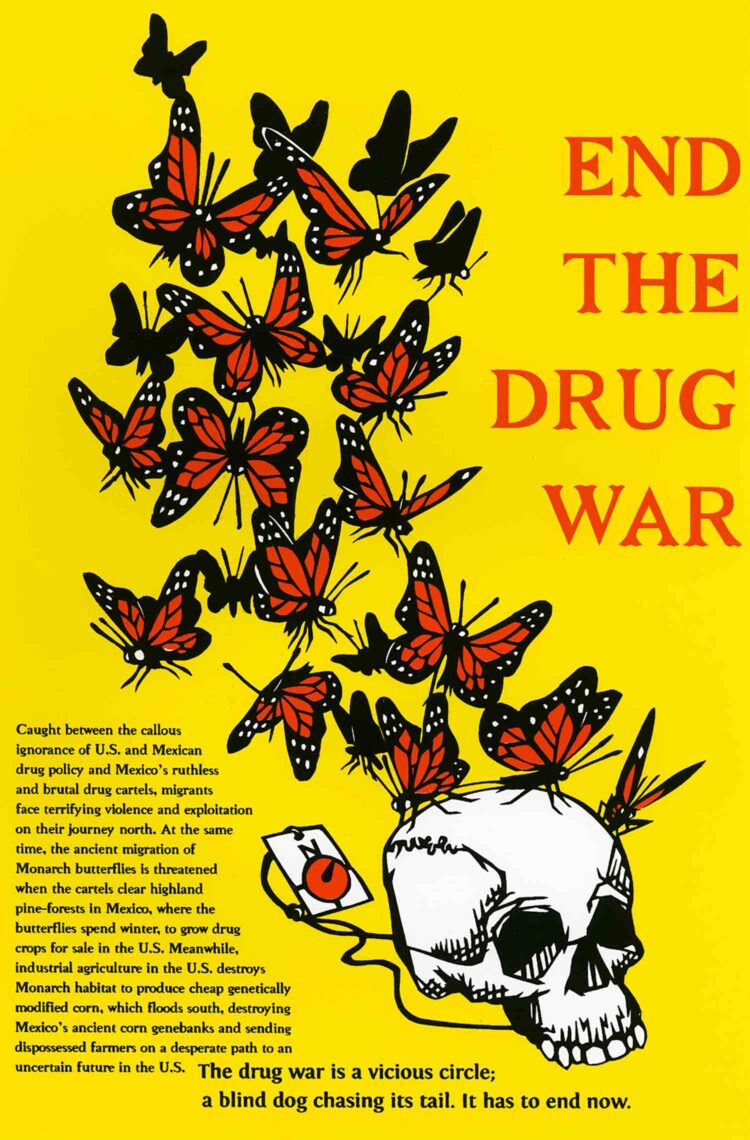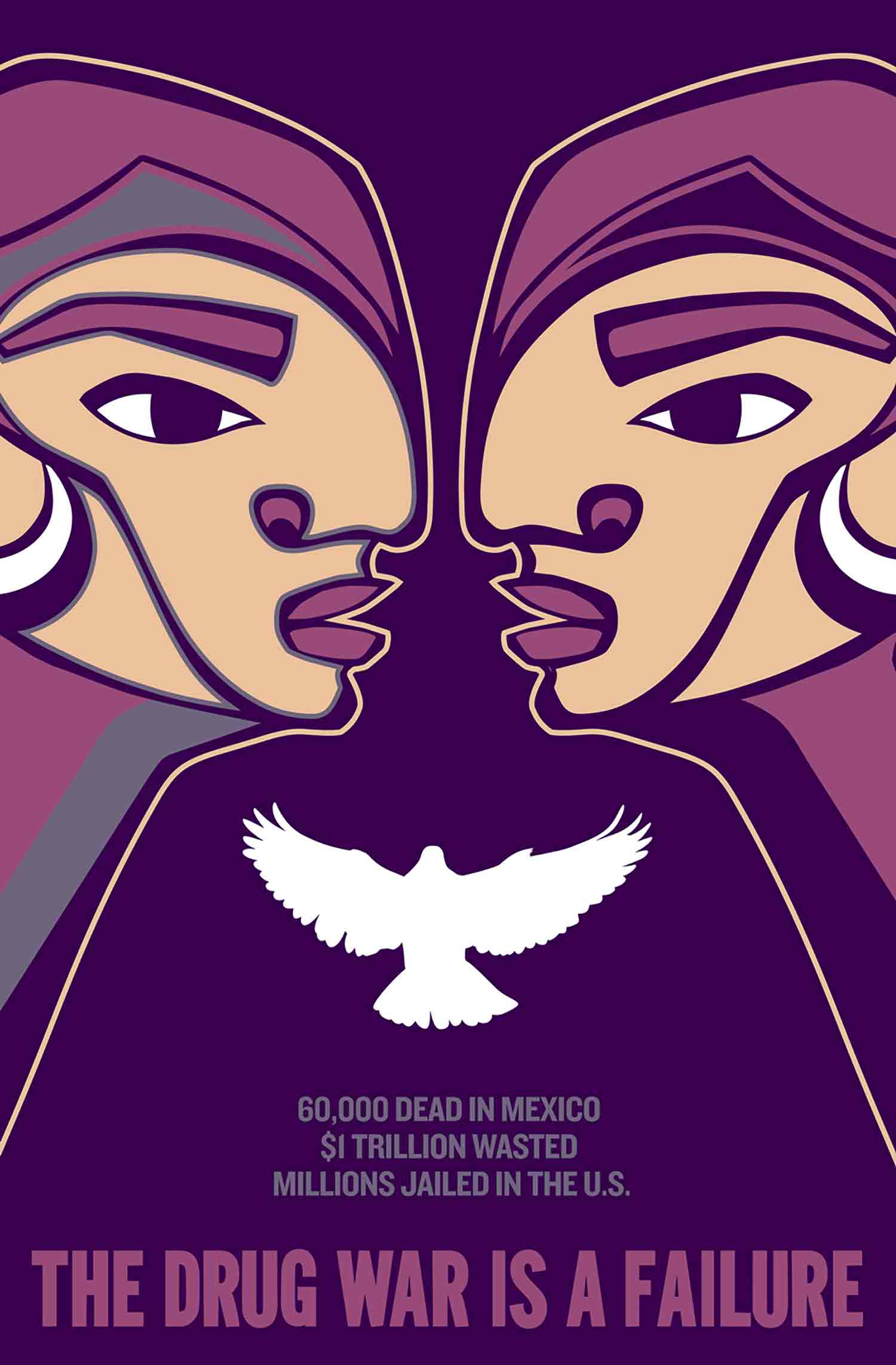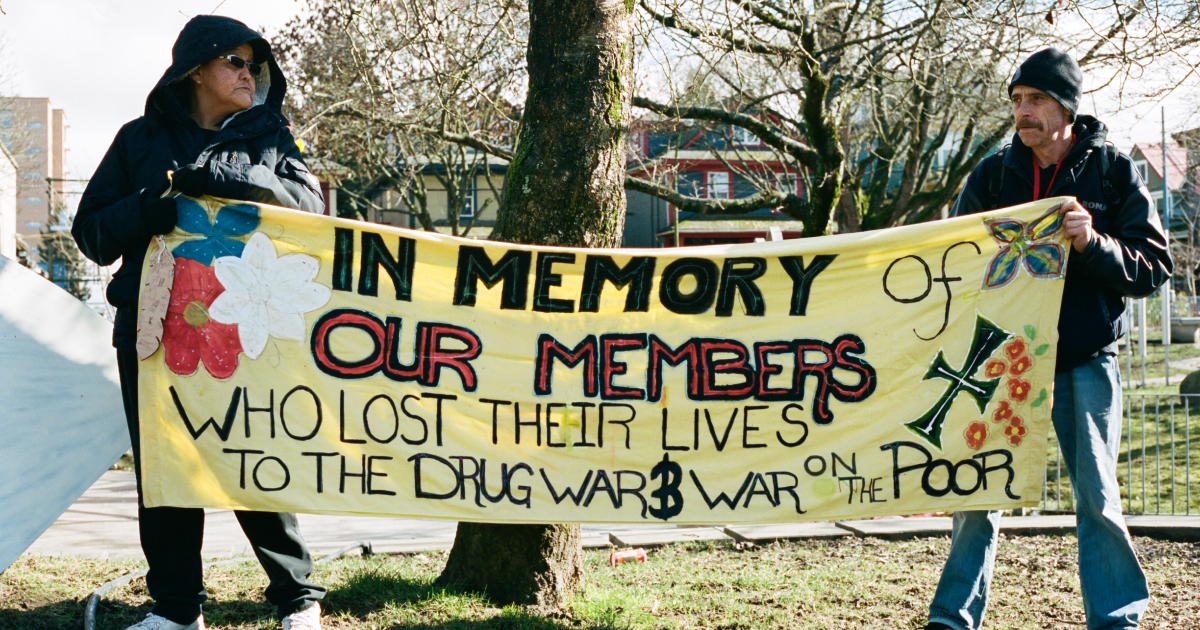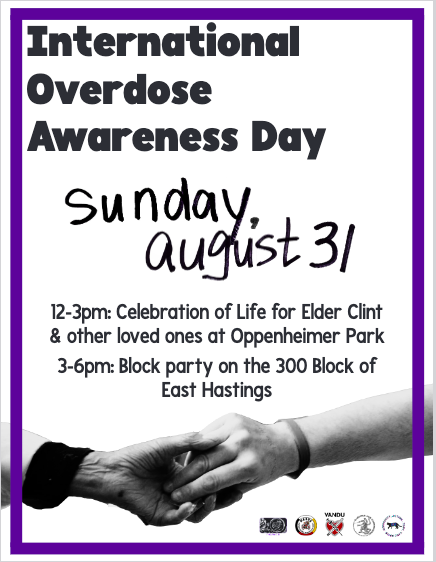WOW Statement: End the Global War on Drugs
Every August 31, International Overdose Awareness Day brings people together around the world to take action on preventable overdose deaths and the legislated violence of drug policy. As an internationalist collective committing to dismantling fascism, Weaving Our Worlds offers our solidarity and commemoration on International Overdose Awareness Day. We encourage our communities to join the fight to end the War on Drugs that has been used isolate and repress communities here and everywhere.
Close to 51,000 Canadians died from drug toxicity between 2016 and 2024, making unregulated toxic drug supply one of the most pressing health issues. This legislated violence is paralleled by the rise of the fascist right consolidating against drug users – through the dehumanization and stigmatization of people who use drugs; “law and order” policies justifying more policing and prisons; and scapegoating drug users for homelessness and mental health crises. In Canada, fascists and liberals both falsely blame migrants, trans people, Muslims, Indigenous land defenders, and people who use drugs for the neoliberal manufacturing of inequality, impoverishment, and despair. Fighting the drug war is key to fighting fascism!
War on Drugs is Imperialist Destabilization:
The drug war has been used as a pretense to advance the interests of imperialism and global capitalism. The US Drug Enforcement Administration has jurisdiction to operate & intervene in 69 countries – from Mexico to the Philippines to Nigeria. The past four decades of drug wars in Mexico and Colombia have been used to displace communities from resource-rich land, destroy crops in order to land grab, justify enforcement operations under the guise of “ending narco-trafficking,” and repress resistance through forced disappearances and extrajudicial killings. Simultaneously, drug prohibition helps solidify monopoly capitalism and super-labour extraction in the illicit drug industry, ensuring high profit margins for owners and bosses.
In Israel, pharmaceutical companies benefit from stolen land and a captive Palestinian market, while Israel floods Palestine with opioids like drug-laced flour bags distributed during the genocide and forced starvation of Gaza.
Artist Favianna Rodriguez, Just Seeds
War on Drugs and Colonial Violence:
The Indian Act in 1886 prevented Indigenous peoples from buying and possessing alcohol. This led to the arrest and imprisonment of thousands of Indigenous people as a way to maintain colonial control. This pattern continues today. At the same time, the criminalization of the Mohawk tobacco trade has been used to maintain corporate profits, while undermining Indigenous sovereignty.
The current harms of the toxic drug crisis in so-called BC are also disproportionately borne by Indigenous peoples. In 2024, First Nations people died at 6.7 times the rate of other BC residents, and First Nations women died at 11.6 times the rate of other women. First Nations peoples accounted for almost 20 percent of toxic drug poisoning deaths last year. By focusing on “individual addiction” instead of settler colonial violence, drug policy is Indigenous genocide.
“They talk about it like it’s an overdose crisis when in fact it’s basically genocide” – Mary, in Vancouver’s DTES
War on Drugs and Anti-Migrant Racism:
Anti-migrant racism has been linked to drug policy especially in Canada and the US. Vancouver was the birthplace of drug prohibition in Canada, driven largely by anti-Chinese racism and a perceived threat to white middle class purity. Anti-opium campaigns were excuses to vilify Chinese migrants and justify anti-Chinese exclusion laws, while Britain’s own colonial opium wars and trade in opium flourished because it benefited the colonial empire. Between 1908 and 1922, 75 percent of those convicted under opium drug laws in Canada were Chinese. On “Canada Day” July 1 1923, the Chinese Exclusion Act passed, banning almost all Chinese immigration to Canada. This day became known as Humiliation Day amongst the Chinese and Chinese-Canadian community.
The main driver for drug prohibition since the late 1800’s has always been tied to this racialized anti-migrant targeting – most obvious with today’s racist rhetoric linking “narco-gangs” to Latinx and Caribbean immigrants, and lesser known through the prohibition of Khat as a means to control Somali immigration.
War on Drugs and Gender-Based Violence:
BC’s provincial inquiry and the National MMIWG2S+ Inquiry both found that the stereotyping and stigmatization of Indigenous women as sex workers and drug users were key factors in their disappearances and deaths not being taken seriously, therefore contributing to the epidemic of colonial gendered violence. Meanwhile, an unregulated drug supply exacerbates gender-based violence through increased vulnerability and increased fatality. In 2024 in BC, the rate of drug toxicity death among females went up 60 percent.
Carceral solutions in the drug war – like more policing, anti-trafficking measures, street sweeps, and gang ordinances that supposedly “keep women safe” – actually contribute to more gender-based violence. It does so by isolating women from community-based supports, forcing women and gender diverse people into more dangerous relationships of violence and debt extraction, and increasing family policing and child apprehension.
War on Drugs is War on the Poor:
Poor people who use drugs in public view — not middle class or rich people — are most likely to be forced to deal with law enforcement & social services. The recent War on Drugs was conceived by right-wing US President Nixon in the 1970’s to keep communities impoverished, contained, and repressed. John Ehrlichman, Nixon’s advisor, said in 1994 “We knew we couldn’t make it illegal to be either against the war or black, but by getting the public to associate the hippies with marijuana and blacks with heroin, and then criminalising both heavily, we could disrupt those communities.” This led to racially-enforced drug laws, anti-Black racial profiling, and a massive spike in the incarceration of working class Black people across the US.
In the Philippines, former President Rodrigo Duterte’s “war on drugs” led to the killings of almost 30,000 people – mostly men from impoverished urban neighbourhoods, with the police and paid killers building an economy off extrajudicial executions.
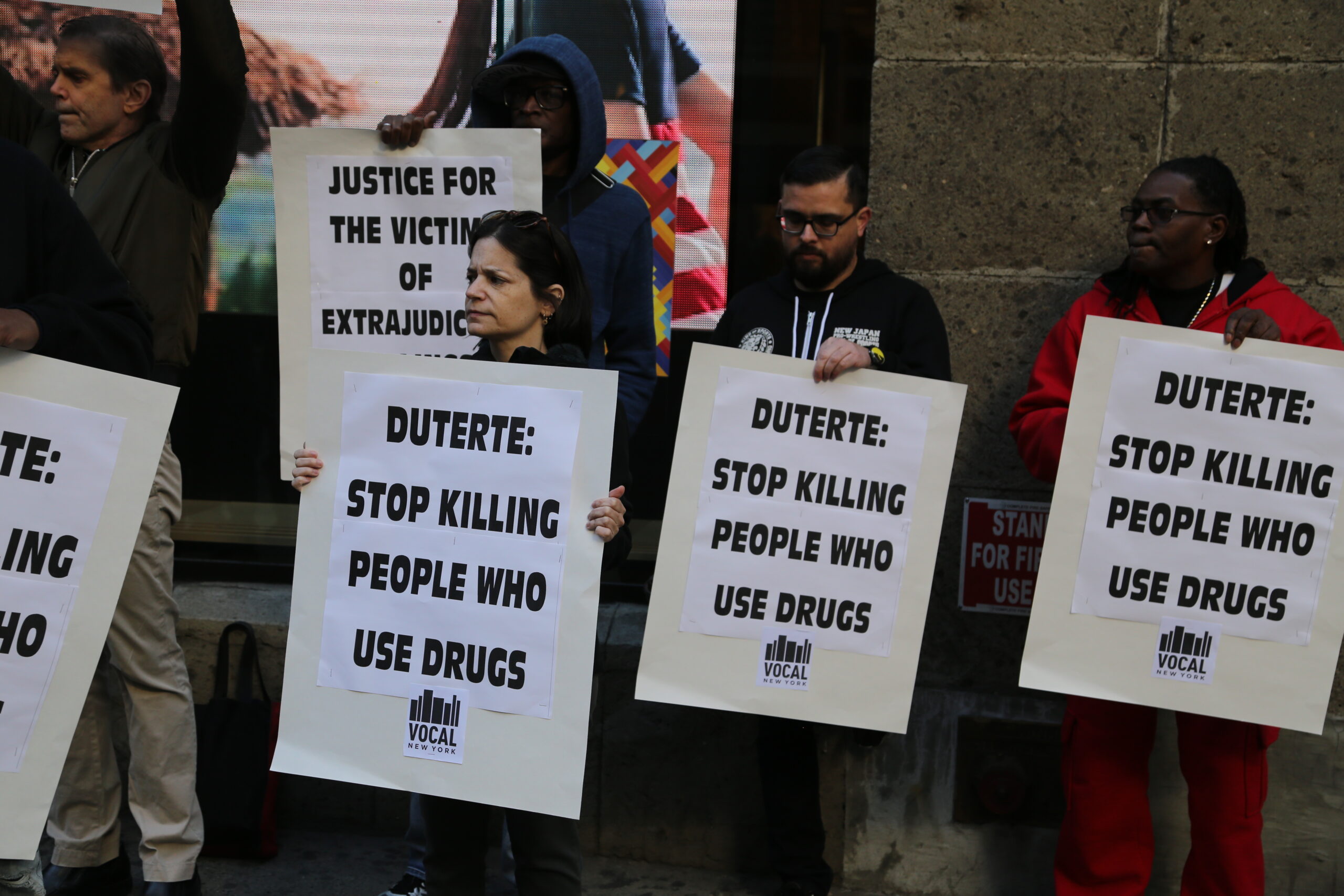
Through criminalization and stigma, the war on drugs maintains capitalist cycles of forced poverty and enforced vulnerability, while anti-drug user rhetoric & policies are used to further criminalize houseless people and street economies.
War on Drugs and Carceral Expansion:
The war on drugs has provided the justification for increased policing and carceral state violence, particularly harmful to Black communities. Since 1971, the U.S. has spent more than a trillion dollars on the war on drugs and nearly 80% of those incarcerated for so-called drug crimes are Black or Latinx. In Britain, Black people are nine times more likely to be stopped for drugs compared to white people. In Toronto, Black people were three times more likely to be arrested by Toronto police for possession of small amounts of marijuana than white people. Across Canada, the criminalization model includes arrests for drug-related offenses, police seizure of drugs (which increases overdose risks), and incarceration. In 2021, 61,798 drug arrests took place across the country.
This police enforcement maintains anti-Black and racialized surveillance, colonial violence and control of Indigenous peoples, gentrification & the capitalist regulation of space, and mass displacement – from street sweeps to mass deportations.
End the Drug War!
The toxic drug crisis is murdering thousands in BC. We encourage everyone to become familiar with recognizing an overdose and learn how to administer naloxone (kits are free of cost at local pharmacies). At a global level, the War on Drugs everywhere is a deliberately punitive war that destabilizes communities, blocks access to care, and maintains colonialism and capitalism through carceral systems of police & prisons & borders & gentrification & involuntary treatment. The War on Drugs is a global war on the poor that must end as part of our struggles for collective liberation and autonomy!
Study in Struggle Resources
Want to know more? Weaving our Worlds has monthly study in struggle conversations and last month we focused on the toxic drug crisis and the deadly results of the War on Drugs. Our list of resources describes the use of the the drug war as a mechanism of colonial, imperialist, and class violence, and how the state uses the destabilization and extraction to further perpetuate state violence.
Check it out: https://www.weavingourworlds.ca/war-on-drugs-readings/
Stay tuned
On August 31, Weaving Our Worlds will be launching a wage solidarity fundraiser to end the War on Drugs. We encourage everyone to redistribute one day’s wages to local drug liberation groups, like DULF whom our wage solidarity campaign will support. The average daily wage in so-called BC is $270. We need just 50 people to donate one day’s wage to help us make this goal!
And join an International Overdose Awareness event near you: https://www.overdoseday.com/events-2025/
